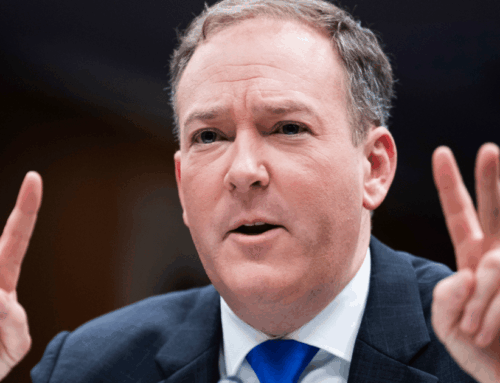Christian investors gather in Denver for ecumenical investing conference
April 4, 2025
Catholic and Protestant leaders are collaborating to make ethical investing decisions for their businesses, apostolates, and universities.
The Christian Institutional Investors conference in Lakewood, Colorado, outside Denver on Thursday brought 160 attendees together to discuss how to apply virtue to business and how to make ethical investments.
Attendees made their way to the April 3 ecumenical conference, hosted by Colorado Christian University (CCU), from across the U.S. as well as locally. In the opening address of the conference, CCU President Eric Hogue called on attendees to “take the wealth that you’ve been given and use it for the glory of God and for the glory of Jesus Christ.”
“You have a long-term perspective because our Father has had a long-term perspective towards you,” he said. “He is invested in you, and he has given to you, and he has called you to this day, this hour, for this season, until the Lord returns.”

In the world of investing, faith organizations typically prefer to avoid investing in companies that act against their values — such as companies that pay for abortion travel or have benefits plans funding in vitro fertilization. But weeding out groups that aren’t mission-aligned takes diligence and attentiveness, and every investing board has different standards.
That’s why investment consulting companies like Innovest, AmPhil, Arimathea, Ascension, and other sponsors of the conference exist.
The U.S. bishops offer guidelines on what to avoid. But Christian organizations often hire consultants to manage their finances, meaning that if the managing company is not faith-based, things may slip through the cracks.
}
(async function() {
const most_read_url = ‘/most-read-api’;
var historyList = document.getElementById(‘mostread-x9h04HQj4t’);
fetch(most_read_url).then((result) => {
var json_result = result.json();
json_result.then((data) => {
historyList.innerHTML = ”;
data.forEach((item, i) => {
var html = render(i, item.url, item.title);
historyList.innerHTML += html;
if ((i + 1) >= 5) {
return false;
}
});
});
}).catch((err) => {
console.error(err);
});
})();
Ensuring good stewardship of donor-based resources is a priority for many of the Christian organizations that were in attendance.
Kyle Washut, president of Wyoming Catholic College — a liberal arts college known for its low-technology model and emphasis on nature — shared that the college is working with several investing organizations at the conference as they invest their emerging endowment.
“We talk a lot in the nonprofit world about the fiduciary responsibility to one’s benefactors; but fundamentally, our benefactor is the Lord, who has commissioned us to work in his vineyard,” Washut told CNA. “And in that sense, our fiduciary responsibility is, first and foremost, to invest the talents, to invest the things he’s given us, to bear fruit for his kingdom.”
“In that sense, mission-based investing is a fundamental starting point for any Catholic on the planet,” Washut said.
Virtue: an alternative framework to ESG and DEI
At the conference, Andrew Abela, founding dean of the Busch School of Business at The Catholic University of America, gave the keynote address: “From ESG to Virtue: The Business Case.”
ESG (environmental, social, and governance) is shorthand for a framework used to assess a company’s values and impact, sometimes used in impact investing.
But for Abela, instead of ESG or DEI (diversity, equity, and inclusion), “the moral framework is virtue.”
(Story continues below)
Subscribe to our daily newsletter
Abela used a moral framework based on St. Thomas Aquinas’ explanation of the four cardinal virtues (temperance, prudence, fortitude, and justice) as connected with the three elements of decision-making: thoughts, feelings, and actions. Abela features this understanding of virtue in his book “Super Habits” and his recently launched app Grow Virtue.
In his remarks, Abela tied the philosophy of St. Thomas Aquinas to contemporary studies by the Positive Psychology Center at the University of Pennsylvania and the Center for Positive Organizations at the University of Michigan.
He noted that many companies and studies champion the value of virtues — but they call them by different names.
“My goal, my dream, is that we get all of corporate America starting to champion the life of virtue, and we do a restoration of virtue in this country,” he said.
An ecumenical conference
The ecumenical conference brought together various leading figures at Catholic and Protestant institutions, universities, and aposolates.
Panelists at the event included Archdiocese of Denver’s COO Keith Parsons and University of Mary’s COO Jerome Richter; Notre Dame Federal Credit Union’s Chief Innovation Officer Robert Shane; and Krystal Parker, president of the U.S. Christian Chamber of Commerce.
The various panelists discussed a variety of topics including values alignment in investing, alternative investments and diversification, a Christian retirement plan, proxy voting, and faith-driven investing.
Hosts of the event included Innovest, the Archdiocese of Denver, AmPhil, the Catholic Foundation of Northern Colorado, and several other Catholic and Christian organizations.
The “most striking” part of the conference for Washut was the “scope” of the ecumenical mission-based investing space.
“We are actually part of a wider ecosystem, and we’re recreating a whole ecosystem,” he said, adding: “It’s exciting to hear the scope that we can have.”
Two surprising attendees at the event were Sister Anne Catherine Burleigh and Sister Mary Thomas Hoffman, two Dominican Sisters of St. Cecilia from Nashville, Tennessee.
“The value of a conference like this is it brings together a lot of great people, Catholics, Christians in the broader Christian community, doing great things to have their faith inform their business life,” Sister Anne Catherine told CNA.
“We’re in the work of education,” she said of her community. “We’re not businesspeople, but we have always benefited from great relationships and great advice with lay experts who can help us really live our mission more deeply.”
Takeaways
Sister Mary Thomas Hoffman shared that one of her biggest takeaways from the conference is that to live out Christianity, you don’t have to give up excellence.
“One of the themes of this conference is that it’s not an either/or, which I think has been the heritage of the Church’s understanding of living our faith fully: It can be coupled with strong returns and investments. It can be coupled with excellent health care. It can be coupled with the best of education,” she said.
Sister Anne Catherine added that it was “very inspiring” and “hopeful” to gather with so many people asking how they can apply their faith down “to the roots” of business operations.
“We never go to God alone. We go to God together, especially as a mystical body, the Church,” Sister Anne Catherine said. “If there are Christian people of faith who can come together, and as they said, even leverage considerable assets, to be not of the world and yet to be in the world with two feet on the ground — there are just a lot more possibilities.”
Search
RECENT PRESS RELEASES
Related Post



